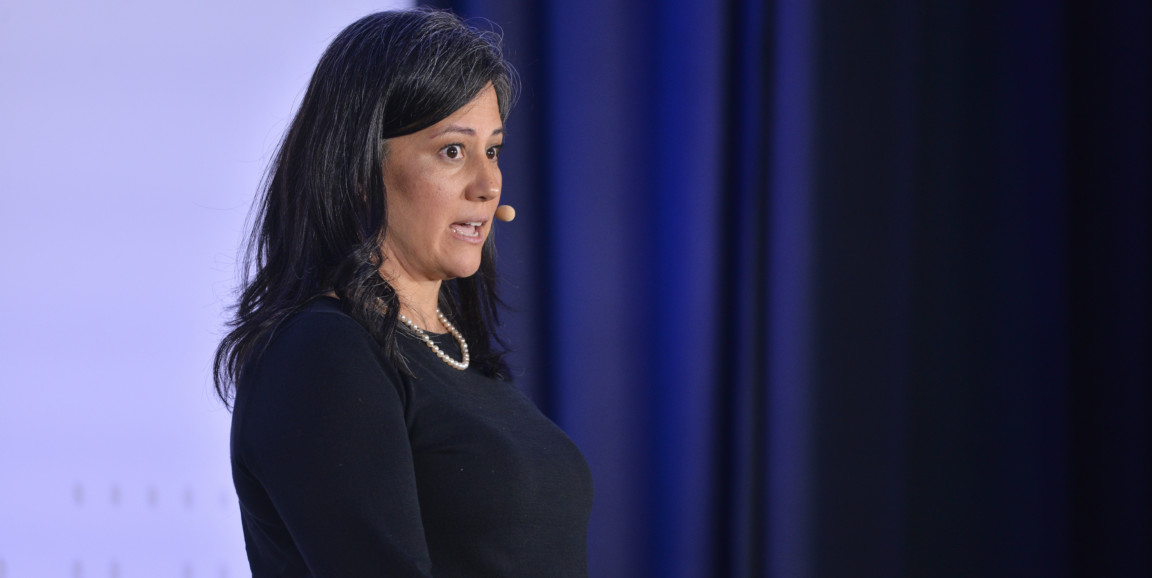The ability to share patient data using technology is beginning to blur the notion of "rare" diseases and is offering more options to identify and treat conditions previously considered undiagnosed, panelists said at the Big Data in Precision Health conference hosted by Stanford Medicine last week.
"I'm going to try to convince you to at least consider the following: that the distinction between a common disease and a rare disease and an undiagnosed disease is, in fact, a false distinction, a misleading distinction that does us, as researchers, and does us, as patients, an enormous disservice," said Isaac Kohane, MD, PhD, chair of the department of biomedical informatics at Harvard Medical School.
In short, he said, there are now more ways to track down patients with genomic and clinical data similar to that of a patient who has a rare condition or lacks a diagnosis.
One resource, he said, is the Undiagnosed Diseases Network. Funded through the National Institutes of Health Common Fund, the network brings together clinicians and researchers across the country -- including those from Stanford -- to diagnose and develop treatments for patients who submit their cases. Over the past four years, Kohane said, "we've seen over 1,000 patients, and we've made over 200 new diagnoses for these patients."
Collaborations offer other possibilities, he said. For example, working with the health insurer Aetna, doctors combed through de-identified data of 60 million people in search of someone with a similar history to a patient who had attention deficit hyperactivity disorder, a cleft palate, a heart defect and other conditions. They found one match, and it was so close to exact that Kohane worried they'd re-identified the original patient. Now the insurer and researchers are taking steps to see if they can include data from both patients in the Undiagnosed Diseases Network.
"There are many hundreds of such patients we can do that for now, today," he said.
For Geraldine Bliss, the director of the Phelan-McDermid Syndrome Foundation, an opportunity arose through Facebook and other online forums where families of patients discussed the genetic condition. She and other foundation leaders wanted to use the pooled information to make inroads into understanding and treating the syndrome, which can cause intellectual and developmental disabilities.
"We couldn't use that data for research purposes, and without research and publications, what parents told their children's medical team carried virtually no weight," said Bliss, whose son has the syndrome.
She worked with researchers to identify the best way to capture patient health, genetic and demographic data, and tasked genetic counselors with curating the information that flowed in. The resulting international registry, which includes more than 1,000 patients, now helps researchers find de-identified patient data and participants for studies.
"We all have stories, and almost all of us have medical records somewhere," Bliss told the audience. "Making sense of the commonalities and differences is one way we might be able to make discoveries that can help prevent or improve disease conditions."
While agreeing that vast health data sets offer great potential for identifying and treating rare diseases, Dekel Gelbman reminded the audience that it is important to be careful when developing and using machine-learning solutions.
His company, FDNA, uses digital means to collect data on symptoms, features and genomics related to rare conditions, and share the information and insights among clinicians and researchers.
Gelbman cautioned that such data is often not available to doctors in developing countries, and that information about medical conditions tended to skew to disproportionately include people of European descent. His company tried to address that issue by taking steps to make the technology easier to access and offering it free of charge. Now, he said, people from more than 130 countries are represented, with more than half of the data from patients with backgrounds other than Caucasian.
Though that doesn't meet the company's aspirations for diversity, Gelbman said, it's a start. He said,
In [artificial intelligence], the quality of the technology is a sum of the data that is training it... If AI is supposed to democratize knowledge and improve health care, especially in the developing world, that absence of data perpetuates and even increases the gaps between developing countries and developed countries.
Photo of Geraldine Bliss by Rod Searcey




